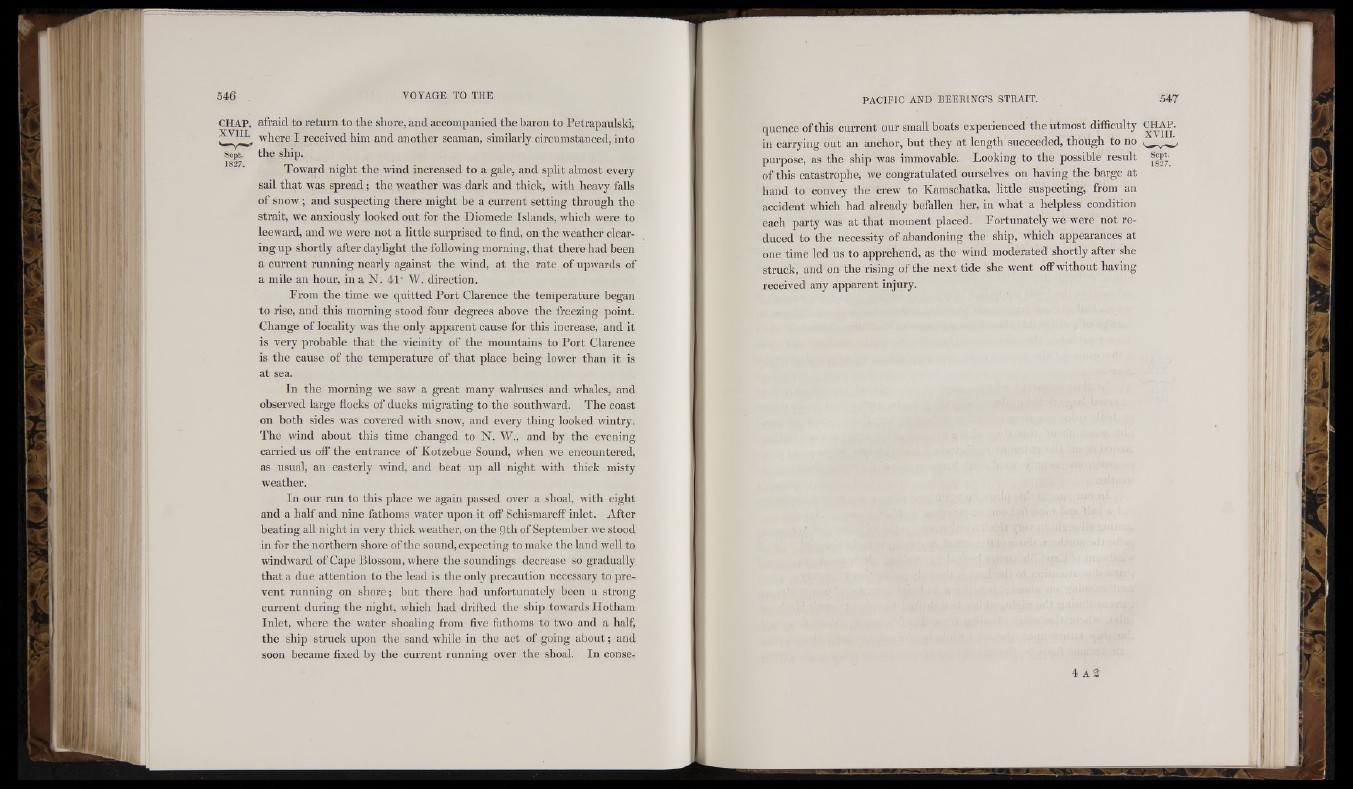
to:' :
C H A P . afraid to return to the shore, and accompanied the baron to Petrapaulski,
r i l ' k where I received him and another seaman, similarly circumstanced, into
Sept. the ship.
1827. Toward night the wind increased to a gale, and split almost every
sail that was spread; the weather was dark and thick, with heavy falls
of snow; and suspecting there might be a current setting through the
strait, we anxiously looked out for the Diomede 1 slands, which were to
leeward, and we were not a little surprised to find, on the weather clearing
up shortly after daylight the folloiving morning, that there had been
a current running nearly against the wind, at the rate of upwards of
a mile an hour, in a N . 4T W. direction.
From the time we quitted Port Clarence the temperature began
to rise, and this morning stood four degrees above the freezing point.
Change of locality was the only apparent cause for this increase, and it
is very probable that the vicinity of the mountains to Port Clarence
is the cause of the temperature of that place being lower than it is
at sea.
In the morning we saw a great many walruses and whales, and
observed large flocks of ducks migrating to the southward. The coast
on both sides was covered with snow, and every thing looked wintry.
The wind about this time changed to N. W., and by the evening
carried us off the entrance of Kotzebue Sound, when we encountered,
as usual, an easterly wind, and beat up all night with thick misty
weather.
In our run to this place we again passed over a shoal, with eight
and a half and nine fathoms water upon it off Schismareff inlet. After
beating all night in very thick weather, on the 9 th of September we stood
in for the northern shore of the sound, expecting to make tlie land well to
windward of Cape Blossom, where the soundings decrease so gradually
that a due attention to the lead is the only precaution necessary to prevent
running on shore; but there had unfortunately been a strong
current during the night, which had drifted the ship towards Flotham
Inlet, where the water shoaling from five fathoms to two and a half,
the ship struck upon the sand while in the act of going about; and
soon became fi.xed by the current running over the shoal. In conseu
quence of this current our small boats experienced the utmost difficulty
in carrying out an anchor, but they at length succeeded, though to no
purpose, as the ship was immovable. Looking to the possible result
of this catastrophe, we congratulated ourselves on having the barge at
hand to convey the crew to Kamsehatka, little suspecting, from an
accident which had already befallen her, in what a helpless condition
each party was at that moment placed. Fortunately we were not reduced
to the necessity of abandoning the ship, which appearances at
one time led us to apprehend, as the wind moderated shortly after she
struck, and on the rising of the next tide she went off without having
received any apparent injury.
4 a 2